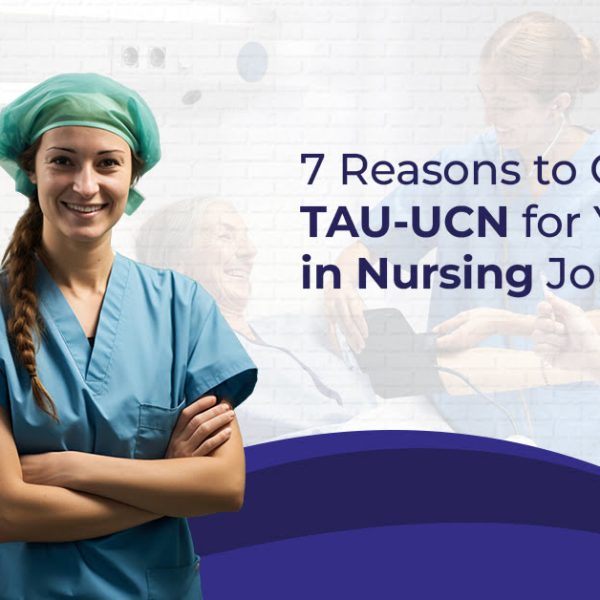Blog Summary
Choosing the best PhD in Nursing program is crucial for career advancement in healthcare. Accreditation, program structure, and specialization options are vital in finding your perfect fit. Accredited programs ensure quality education, while flexible formats cater to diverse needs. Networking through alumni connections and professional associations further enhances career prospects.
Choosing the right PhD in Nursing program is crucial to advancing your nursing career. This decision can shape your future opportunities, so thoroughly researching your options is vital.
Consider factors like accreditation, program structure, and faculty expertise to find the best fit for your needs. Are you looking for an online or on-campus program? What are the specializations offered? How does the program align with your career goals?
Investing time in this process ensures you select a program that meets academic standards and supports your professional and personal growth in nursing.
Accreditation and Reputation
Selecting an accredited nursing program is essential for ensuring a high-quality education and enhancing your career prospects. Accreditation is a mark of excellence, indicating that the program meets established standards.

To verify a nursing program’s accreditation status, check for recognition by reputable accrediting bodies. Researching a program’s reputation through alumni reviews and industry rankings can also provide valuable insights.
Choosing an accredited nursing program ensures you receive a recognized degree employers value and respect.
Evaluating Program Structure and Flexibility
Choosing the right PhD in Nursing program involves understanding the different formats available.
There are three primary formats: online, on-campus, and hybrid. Each has unique benefits and challenges, so it’s crucial to evaluate which best suits your personal and professional needs.
Differentiating Program Formats
- Online PhD in Nursing: Offers flexibility and convenience, allowing you to balance studies with work and personal commitments. Ideal for working professionals and those who need a more adaptable schedule.
- On-campus programs Provide face-to-face interaction with faculty and peers, offering a more traditional academic experience. They are best for those who thrive in a structured environment.
- Hybrid Programs Combine online and on-campus elements, offering a balanced approach. They are suitable for students who want the flexibility of online learning but also value in-person interactions.
Assessing Flexibility Options
- Part-Time vs. Full-Time: Consider your current responsibilities. Part-time programs allow for a slower pace, making it easier to manage alongside other commitments, while full-time programs enable you to complete your degree faster.
Understanding these characteristics might help you select the ideal programme for your lifestyle and career objectives.
Discover the top “7 reasons why TAU-UCN is the perfect choice for advancing your PhD in Nursing journey” by reading our detailed blog!
Researching Specialization Tracks
Choosing the right specialization track within a PhD in Nursing program is crucial for aligning your academic pursuits with your career goals. Specialization tracks allow you to focus on a specific area of nursing, enhancing your expertise and research capabilities.
Here are some key factors to consider when exploring specialization options:
- Faculty Expertise: Investigate the faculty’s background, research areas, and professional achievements. A strong mentorship from experienced faculty can significantly impact your academic and professional growth.
- Research Opportunities: Look for programs that offer robust research opportunities. This includes access to well-funded projects, research labs, and collaborations with leading healthcare institutions.
- Curriculum Relevance: Ensure the curriculum is up-to-date and relevant to current trends in nursing and healthcare. An appropriate curriculum will better prepare you for the challenges in your chosen field.
- Career Outcomes: Research the career paths of alums who have specialized in the areas you are considering. Their success can be a good indicator of the program’s effectiveness in that specialization.
Financial Considerations and Support Options
Considering financial aspects, online PhD in Nursing programs often offer cost-effective options. Tuition fees are typically lower due to reduced campus infrastructure costs. Additionally, many online programs provide flexible scheduling, allowing students to continue working while studying, thus minimizing income disruption.
Scholarships and grants specific to online education further alleviate financial burdens. Choosing an online PhD in Nursing can be a strategic financial decision, offering substantial savings and maintaining career momentum.
Networking and Alumni Support
Alumni Network: Establishing connections through alum networks is crucial for career advancement. By researching alum achievements and career trajectories, prospective PhD candidates can gain insights into the program’s impact on professional growth.
Professional Organizations and Conferences: Participation in nursing associations and industry conferences offers networking opportunities essential for advancing careers. These platforms connect professionals with mentors, job opportunities, and industry trends, enhancing career prospects in nursing.













